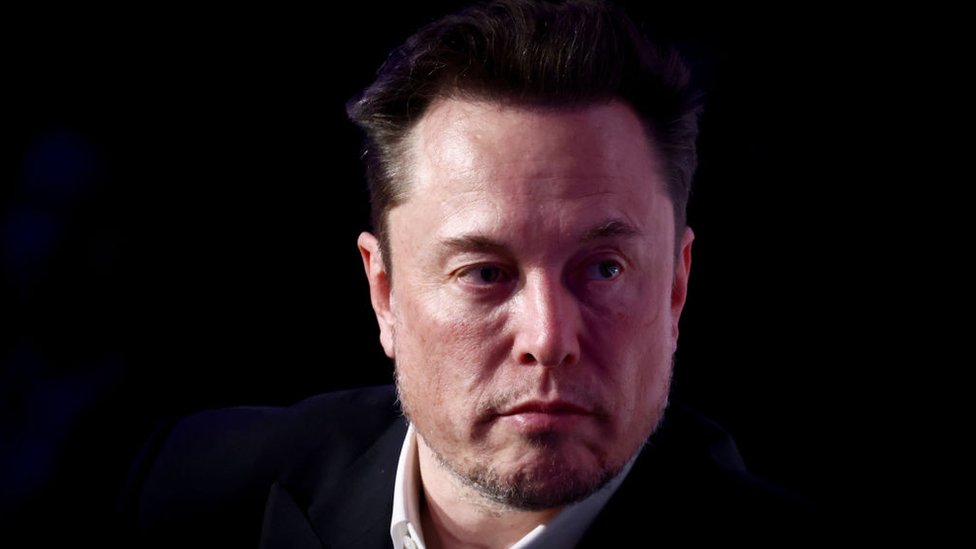Elon Musk sees $56bn Tesla pay deal canceled in court
In the US state of Delaware, a judge has invalidated a $55.8 billion (£44 billion) compensation agreement granted to Elon Musk by the electric car manufacturer Tesla in 2018.
The legal challenge was initiated by a shareholder who contended that the compensation exceeded reasonable bounds.
Judge Kathaleen McCormick characterized the remuneration as “an incomprehensible sum” that disadvantaged shareholders and highlighted significant flaws in the approval process.
She decreed that the agreement should be voided.
The compensation package, finalized in 2018, stood as the largest ever in US corporate history, contributing to Mr. Musk’s ascent as the wealthiest individual globally. In November 2023, estimates by Bloomberg and Forbes placed his net worth between $198 billion (£162 billion) and $220 billion (£180 billion).
Tesla’s compensation structure linked Mr. Musk’s pay to various performance benchmarks, including Tesla’s stock price and financial performance. He did not receive a conventional salary.
Richard Tornetta, a Tesla shareholder, initiated legal proceedings seeking to nullify the award, asserting that the magnate had been excessively compensated.
After extensive legal wrangling, a week-long trial began in November 2022, during which Tesla’s board contended that the substantial compensation was intended to ensure Mr. Musk, a globally renowned entrepreneur, continued to devote his attention to the company.
However, in her 201-page ruling issued on Tuesday, Judge McCormick determined that Tesla’s directors had been unduly influenced by the hype surrounding Mr. Musk’s “celebrity appeal”.
Moreover, Mr Musk had “extensive ties” with the Tesla officials tasked with negotiating the pay award. She cited his 15-year relationship with the compensation committee chair, Ira Ehrenpreis.
Mr Musk also had business relations with another compensation committee member Antonio Gracia dating back more than 20 years, the judge said.
Following the release of the ruling, Greg Varallo, an attorney for the Tesla shareholder Mr Tornetta, said it was a “good day for the good guys,” in an email reported by the Reuters news agency.
In a post on X, formerly known as Twitter, Mr. Musk said: “Never incorporate your company in the state of Delaware”.
“I recommend incorporating in Nevada or Texas if you prefer shareholders to decide matters”,” he added. He then posted a poll asking his followers whether or not Tesla should “change its state of incorporation to Texas, home of its physical headquarters”.
The judge’s ruling can be appealed to the Delaware Supreme Court.
Shares in Tesla were down by around 2.5% in extended New York trade. They have lost more than 20% of their value so far this year.
As well as being the chief executive and a major shareholder of Tesla, Mr Musk also owns several other companies including the social media platform X, the rocket company SpaceX, and the brain chip firm Neuralink.
After selling a large chunk of his stake in Tesla to buy X, Mr Musk currently owns about 13% of the electric carmaker but has recently said he wants a bigger stake in the firm.
When Tesla put forward Mr Musk’s original 10-year pay package in 2018, it attracted widespread public attention. Several shareholder advisory groups recommended voting against the plan, saying it was overly generous.
The package was six times bigger than the salaries of America’s top 200 chief executives combined in 2021, according to research firm Equilar.
Brian Quinn, a professor at Boston College Law School, told the BBC it was “hard to justify a transaction like this”, given Mr. Musk’s influence over the board.
“He treats Tesla like his own but even if he calls himself the ‘Techno-king of Tesla’, he is not the majority owner,” Prof Quinn added.
Mr Musk has also said he is concerned about Tesla’s investments in artificial intelligence (AI) technology.
“I am uncomfortable growing Tesla to be a leader in AI and robotics without having 25% voting control,” he said in a social media post.
He said the current shareholder structure makes Tesla vulnerable to a “takeover by dubious interests” and he wants more control over its direction.
“Unless that is the case, I would prefer to build products outside of Tesla,” Mr Musk added.


